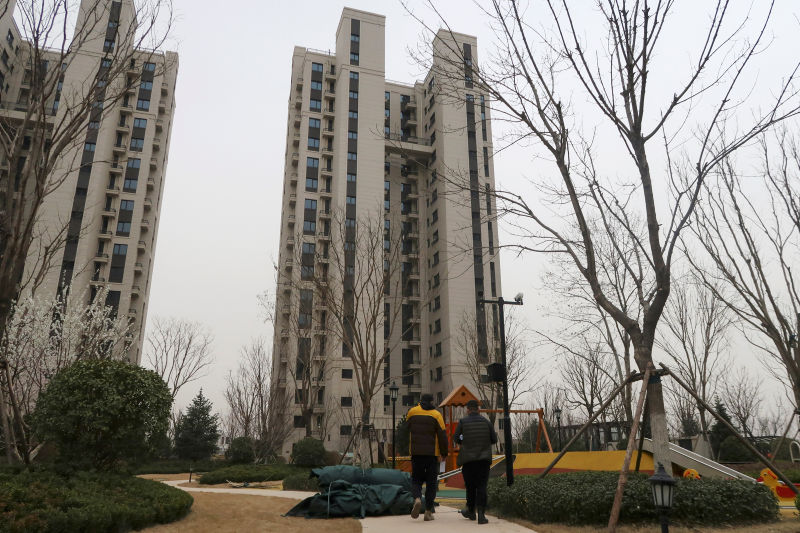A major implosion of China’s property sector would cause the country’s gross domestic produce to plunge to 1% and create aftershocks that would ripple across the world for years to come.
That’s the worst-case scenario outlined in an Oxford Economics research briefing which says a real estate sector collapse combined with greater economic turmoil could scar the world’s economies for the remainder of the decade.
They warn if residential investment in China falls as much as it did in the US and Spain during the 2000s global financial crisis, and property prices fall for four years to 2025 – in line with what happened in the US during the subprime mortgage crisis – the impact could be severe.
“Considering generations of China’s residents have never witnessed a major economic downturn – except the short Covid-triggered plunge in 2020 – we assume a property slump of this magnitude would produce a confidence shock that is twice as large as what happened during China’s 2014-2015 property downturn,” said Louis Kuijs, Head of Asia Economics at Oxford Economics.
Also on AF: SE Asia Internet Economy to Hit $1tn by 2030, Says Report
“China’s GDP growth would trough at 1.0% in Q1 2023 – 4.3ppts lower than in the baseline. The impact on global growth would also be much larger, with global growth 1.6ppts lower in late 2022 and early 2023.”
Though Kuijs adds: “In our view, this is a low probability scenario, in part because of much lower loan-to-value ratios on mortgages and the room to ease property policy if needed should help avoid the kind of turmoil and price declines experienced in the US and Spain.”
A cyclical slowdown in the property sector has been made worse by a tightening of regulatory and credit policies. These include the ‘three red lines’ regime aimed at reducing developers’ leverage, limits on property-related bank lending, changes to the land auctioning process, and guidance to banks to slow mortgage approvals and raise mortgage rates.
And Kuijs points to excesses and imbalances that have built up in China’s real estate sector and factors that could aggravate the property downturn, including “major economic and financial spillovers from defaults by Evergrande or other developers, a sharp deterioration of sentiment in the housing market, and a doggedly hawkish policy stance.”
Global Metal Prices
The global impact would be intensified, Kuijs says, by a lack of forceful discretionary policy easing globally.
“This could happen if international policymakers assume Beijing will step in with forceful stimulus, but China’s policymakers decide not to do that,” he said.
And in this worst-case scenario, China’s imports of commodities would tank and global metal prices would plunge.
“The worst hit countries would be those for whom exports to China are economically important and commodity exporters. For China, such a large-scale downturn in real estate would be highly disruptive in the first few years.”
In addition to the economic dislocation, the financial system would be scarred significantly, Kuijs warns in the briefing.
Internal Monetary Easing
“Despite substantial provisioning by banks in recent years, stress tests by the People’s Bank of China and the IMF/World Bank suggest that, in the case of [this] severe scenario, banks would see their capital adequacy ratios fall significantly, requiring more provisioning and/or capital injections.”
However, the researchers believe a more likely scenario will see a more limited impact with the internal easing of monetary policy helping to crowd-in productive investment and other spending.
“We expect the real estate slowdown to be significant but to be contained,” said Kuijs. “Unlike at the start of the 2014-2015 property downturn, the stock of unsold housing hanging over the market is modest. What’s more, policymakers have scope to ease property sector policies to prevent the downturn from turning uncomfortably intense.
“In the medium-term, we expect a gradual retrenchment of the property sector. While a relatively high proportion of empty apartments is weighing on the market, we expect urbanisation and significant income growth to help reduce the risk of a more drastic retrenchment.”
- By Sean O’Meara
Read more:
Concern On $148m Evergrande Payment, EV Unit Share Sale
China Contagion Risks Rising On Developer Woes, Says S&P
























